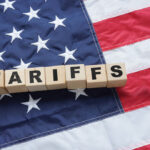Bunge Global’s plan to swallow up Glencore-backed Viterra for $8.2 billion has hit a wall—and the main culprit is the worsening trade feud between Washington and Beijing. Despite rounds of high‑level talks and flashy promises, China still hasn’t signed off on the deal. Here’s a closer look at what’s holding things up and why it matters.
A Deal on Hold as Trade Tensions Rise
Bunge’s boss, Greg Heckman, has hopped on multiple flights to Beijing, hoping to smooth over regulatory hurdles. Yet, nearly a month after President Trump’s aggressive tariffs went into effect, China has given no green light. Across the globe, other authorities are dragging their feet, too—Canada’s competition watchdog and the European Union both say they need more time to vet the merger.
Originally, Bunge aimed to wrap up the takeover by mid‑2024, with a hard deadline of August. Now, insiders say a finish line by year‑end looks more realistic. In the meantime, Bunge shares slipped 1.8% in New York trading, wiping out earlier gains as investors grew skittish about the pipeline of approvals.
Canada and the EU Voice Anti‑Trust Fears
In Ottawa, Canada’s competition bureau warned the merger could hurt farmers and grain buyers by giving the new Bunge‑Viterra giant too much sway over crop markets. In Brussels, regulators flagged potential anti‑competitive risks in Central European grain hubs. They’ve asked Bunge to propose remedies—such as asset sales or behavioral commitments—by a looming EU deadline. If those fixes aren’t enough, Brussels could stretch its review by another 10 days or even open a deeper investigation.
China’s Silent Review
China matters most because it’s the world’s biggest soybean importer and a top market for grains. In the past, Beijing has blinked: when Glencore bought Xstrata, it forced a Peruvian copper mine sale to ease Chinese concerns. Observers worry a similar concession could be on the table for Bunge’s Viterra deal. But for now, China remains silent, and that quiet is causing headaches for Bunge’s planning team.
CEO Heckman Seeks to Calm Fears
To soothe jitters, Greg Heckman penned an opinion piece in a Canadian trade magazine. He argued the merger would boost Canada’s economy, create new jobs, and keep all existing plants open. Heckman also downplayed conflicts with G3, the joint venture between Bunge and Saudi Agricultural & Livestock Investment Co., pointing out that G3 and Viterra already compete head‑to‑head—and will continue to do so after the deal closes.
Why This Merger Matters
Bunge, the “B” in the storied ABCD quartet of grain traders (alongside Archer-Daniels-Midland, Cargill, and Louis Dreyfus), has long been the smallest of the big four. Teaming up with Viterra would create a $25 billion powerhouse, better able to stand toe‑to‑toe with its larger rivals on global trading floors.
For farmers, this tie‑up could open new doors—giving them access to more buyers around the world and smoother ways to get their grain from field to port. But not everyone’s convinced it’s a win‑win. Some worry that with one fewer big player in the game, fees could climb and markets could become less competitive, which is exactly what antitrust watchdogs are fretting over.
What’s on the Horizon?
Now, everyone’s watching China’s Ministry of Commerce. A nod from Beijing would clear the path for Bunge and Viterra to join forces. But until that happens, farmers, traders, and even Wall Street will be biting their nails, waiting to see if China will give its blessing—or hold up the deal even longer.For farmers, a successful merger could mean broader market access and more efficient logistics. Yet, critics worry fewer giant traders would lead to higher fees and less price competition—hence the antitrust alarms.
- Waiting on Beijing: A positive nod could send Bunge’s stock soaring—and clear the path for other agriculture deals.
- EU Remedies: If Brussels demands big divestments, Bunge might have to sell off certain grain terminals or storage facilities in Europe.
- Canadian Green Light: Ottawa’s final verdict could come any day now. A swift thumbs‑up would ease pressure, while a no‑go would force Bunge back to the drawing board.
If these holdouts lift their objections, Bunge could still meet its late‑year target. But the longer approvals drag on, the more uncertainty traders, farmers, and investors must bear.
Read Also: Major Shock: Tariff Loophole Closed—Cheap Imports Facing Painful Price Hikes






